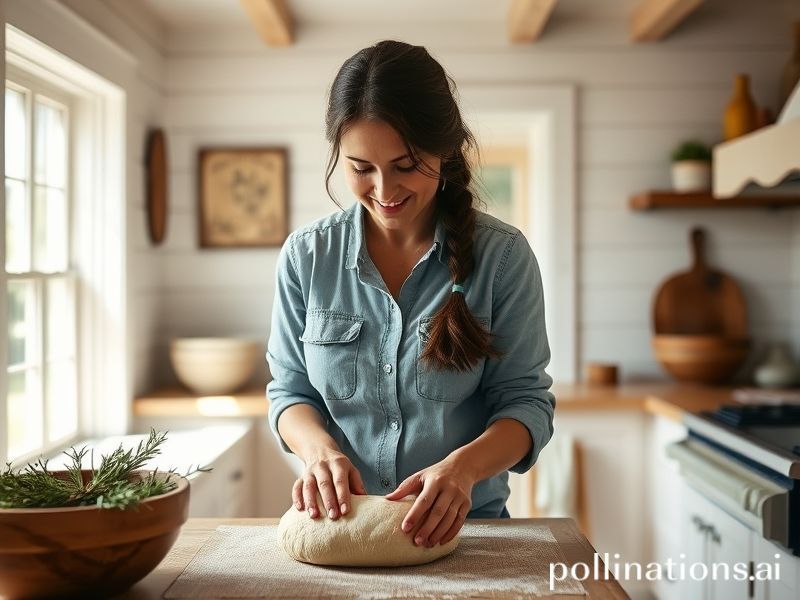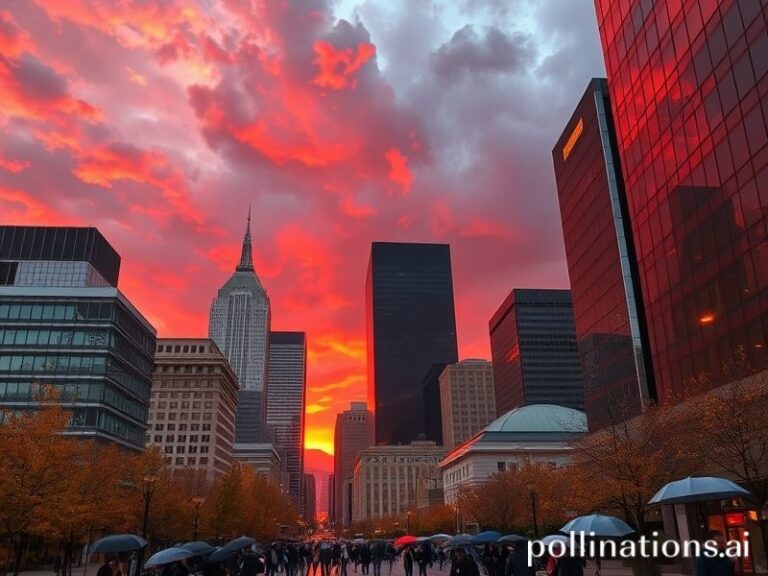Shiplap Diplomacy: How Joanna Gaines Conquered the World One Distressed Plank at a Time
Joanna Gaines and the Worldwide Gospel of Shiplap: How a Texan Farmhouse Became the New Soft Power
From the refugee tents of northern Syria to the glass-walled co-working lofts of Singapore, one aesthetic keeps popping up like an unsolicited push notification: white-washed shiplap, matte-black fixtures, and the faint smell of eucalyptus pretending to be a forest. The architect of this global fever dream is Joanna Gaines—HGTV empress, Waco-based lifestyle evangelist, and the woman who managed to convince entire continents that “rustic” means buying a distressed metal sign that says “FARMHOUSE” in Helvetica Neue.
In the grand tradition of American cultural exports—fast food, sitcoms, questionable wars—the Gaines brand now sits comfortably alongside Marvel and Taylor Swift in the pantheon of things the world never asked for but consumes anyway. Magnolia Network shows stream in 193 countries, subtitled in 37 languages, each version teaching viewers how to turn a disused grain silo into a $4,000-a-night Airbnb. The result? A planet where a banker in Lagos can now describe his new open-plan kitchen as “very Waco,” while a grandmother in rural Moldova hangs faux-vintage enamelware in pursuit of what the subtitles call “hygge Texana.”
International relations scholars, when they can pry themselves away from the latest coup, have begun classifying the phenomenon as “aesthetic soft power.” The theory goes like this: if you can persuade people to repaint their walls the color of oat milk, you might also persuade them to buy American-made faucets, watch American-made television, and, who knows, maybe one day vote for policies that keep those supply chains humming. It’s like the Marshall Plan, except instead of rebuilding Europe with steel and concrete, we’re rebuilding it with reclaimed barnwood and artisanal jam.
Of course, not everyone is clapping along to the muted acoustic guitar soundtrack. European preservationists grumble that centuries-old cottages are being gutted to make room for “statement islands” the size of Liechtenstein. Japanese minimalists—who practically invented the art of serene emptiness—watch in horror as their tatami rooms are invaded by oversized clocks that say “Gather” in hand-brushed lettering. In Brazil, favela residents note the irony: affluent Brazilians are paying premium prices for corrugated-metal roofing, the same material they spend their lives trying to escape. Somewhere in the afterlife, Walter Benjamin is chain-smoking and muttering, “Even the ruins are being gentrified.”
Still, the success is undeniable. Magnolia’s quarterly earnings now outpace the GDP of several Pacific micro-nations, and the Gaineses have leveraged that capital into ventures that span from boutique hotels to a forthcoming line of eco-friendly fertilizer—because nothing says “authentic farm life” like micronutrient-enhanced compost sold in a resealable kraft pouch. Meanwhile, knockoff “modern farmhouse” décor factories in Zhejiang Province operate 24/7, churning out galvanized planters and distressed “Live Laugh Love” signs with the ruthless efficiency that once made China the workshop of the world. Global capitalism, ever the dutiful DJ, has simply swapped the vinyl from Mao’s Little Red Book to reclaimed oak.
And yet, beneath the whitewash, a darker joke lingers: at the precise moment when millions of viewers are learning how to distress new wood to look old, the planet itself is becoming distressingly new—wildfires, sea-level rise, supply-chain collapse. The aesthetic promise is that if we just arrange enough potted succulents and Edison bulbs, we can domesticate the apocalypse, one open shelving unit at a time. It’s Marie Kondo for the climate crisis: tidy up, light a lavender candle, and hope the rising tide matches your color palette.
So Joanna Gaines sails on, a serene figurehead on the ship of aspirational living, her smile as unblemished as a freshly painted baseboard. Somewhere off the coast of Senegal, a cargo freighter heaves with “vintage-inspired” lanterns bound for a pop-up market in Dakar. And somewhere in a Midwestern suburb, a teenager binge-watches Fixer Upper with the captions off, dreaming of a life far away—never realizing that even her escape fantasy comes flat-packed, with an Allen wrench and instructions in seventeen languages.







